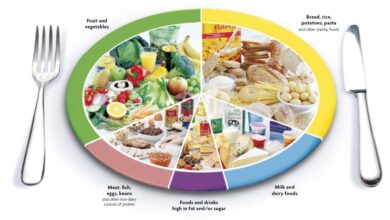From Kitchen to Wellness: Nutrition-Focused Cooking Tips

Cooking plays a crucial role in our overall well-being. By focusing on nutrition and incorporating wholesome ingredients into our meals, we can enhance our health and wellness. In this blog, we will explore a range of nutrition-focused cooking tips that can transform your time in the kitchen into a wellness-enhancing experience. From meal planning to ingredient substitutions, these tips will help you make conscious choices and create nourishing meals that contribute to your optimal health.
- Meal Planning for Balanced Nutrition:
- Plan your meals ahead to ensure a well-balanced diet.
- Include a variety of fruits, vegetables, whole grains, lean proteins, and healthy fats in your meal plan.
- Consider incorporating different cooking methods to maximize nutrient retention.
- Embrace Plant-Based Proteins:
- Experiment with plant-based protein sources like legumes (beans, lentils, chickpeas), tofu, tempeh, and quinoa.
- These options provide essential nutrients, fiber, and antioxidants while reducing the intake of saturated fat and cholesterol.
- Opt for Whole Grains:
- Replace refined grains with whole grains like brown rice, quinoa, whole wheat pasta, and oats.
- Whole grains are rich in fiber, vitamins, and minerals, providing sustained energy and promoting digestive health.
- Reduce Added Sugars:
- Minimize the consumption of processed foods that contain added sugars.
- Experiment with natural sweeteners like honey, maple syrup, or mashed bananas in your baked goods.
- Steaming and Roasting for Nutrient Retention:
- Opt for steaming rather than boiling vegetables to retain their nutrients.
- Roasting vegetables with a drizzle of olive oil and herbs brings out their natural flavors while maintaining nutritional value.
- Experiment with Herbs and Spices:
- Flavor your dishes with herbs and spices instead of relying on excessive salt or high-calorie sauces.
- Herbs like basil, cilantro, and thyme, and spices like turmeric, cinnamon, and cumin provide flavor and additional health benefits.
- Use Healthy Fats:
- Replace saturated and trans fats with healthy fats like avocados, nuts, seeds, and olive oil.
- These fats support heart health and provide essential fatty acids.
- Mindful Portion Control:
- Pay attention to portion sizes to avoid overeating.
- Use smaller plates and bowls to visually trick yourself into feeling satisfied with smaller amounts of food.
- Incorporate Colorful Fruits and Vegetables:
- Include a variety of colorful fruits and vegetables in your meals to maximize nutrient intake.
- Different colors indicate a range of antioxidants and phytochemicals essential for maintaining optimal health.
- Hydrate Mindfully:
- Stay hydrated by incorporating water-rich foods like cucumbers, watermelon, and citrus fruits into your meals.
- Be mindful of added sugars in beverages and opt for water or herbal teas as your primary hydration source.
Conclusion:
By implementing these nutrition-focused cooking tips, you can transform your time in the kitchen into a wellness-enhancing experience. Meal planning, incorporating plant-based proteins and whole grains, reducing added sugars, and experimenting with herbs and spices can significantly impact your overall health. Mindful portion control, incorporating colorful fruits and vegetables, using healthy fats, and hydrating mindfully further promote a balanced and nutritious diet. By making conscious choices in the kitchen, you can nourish your body, support optimal health, and embark on a fulfilling wellness journey.




